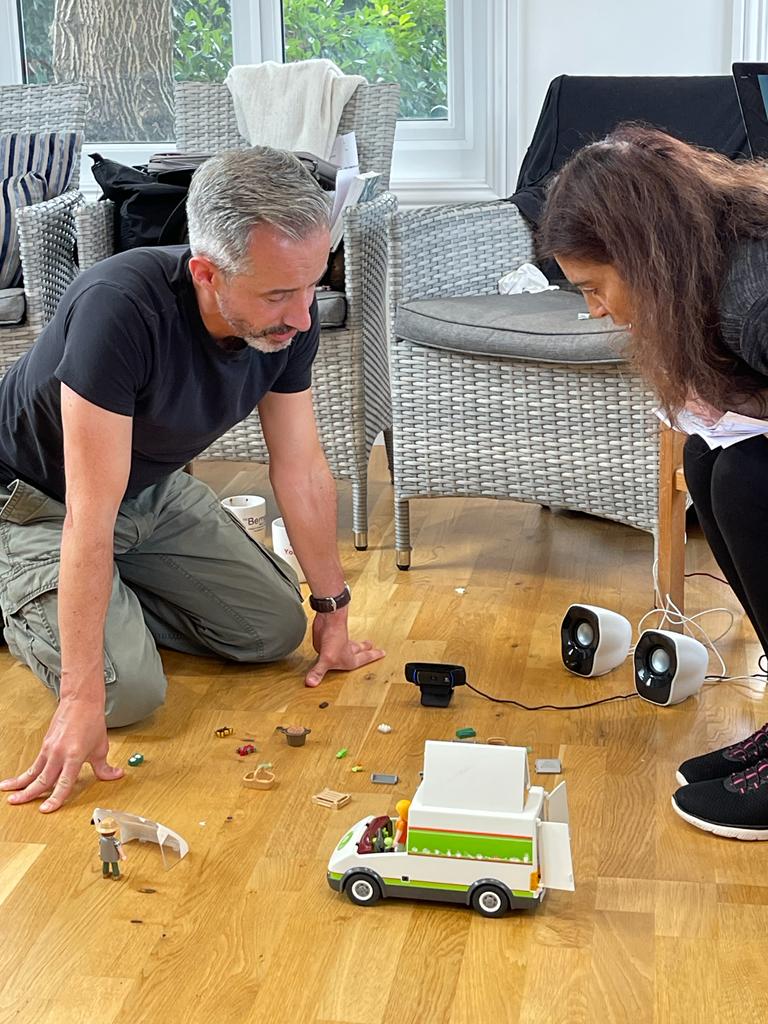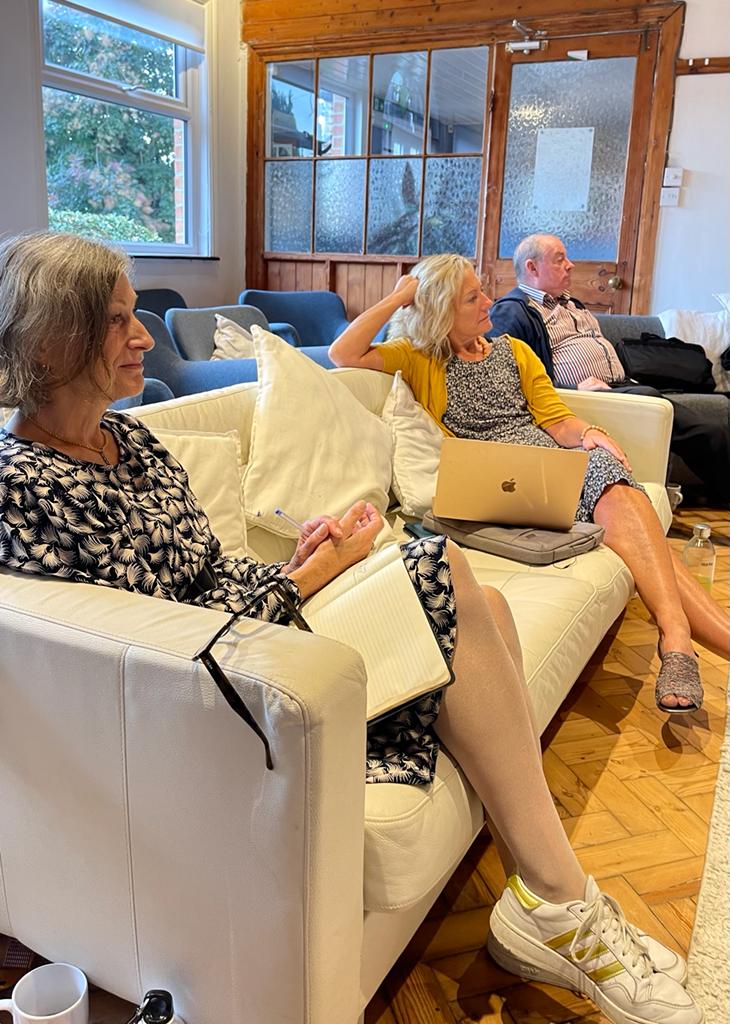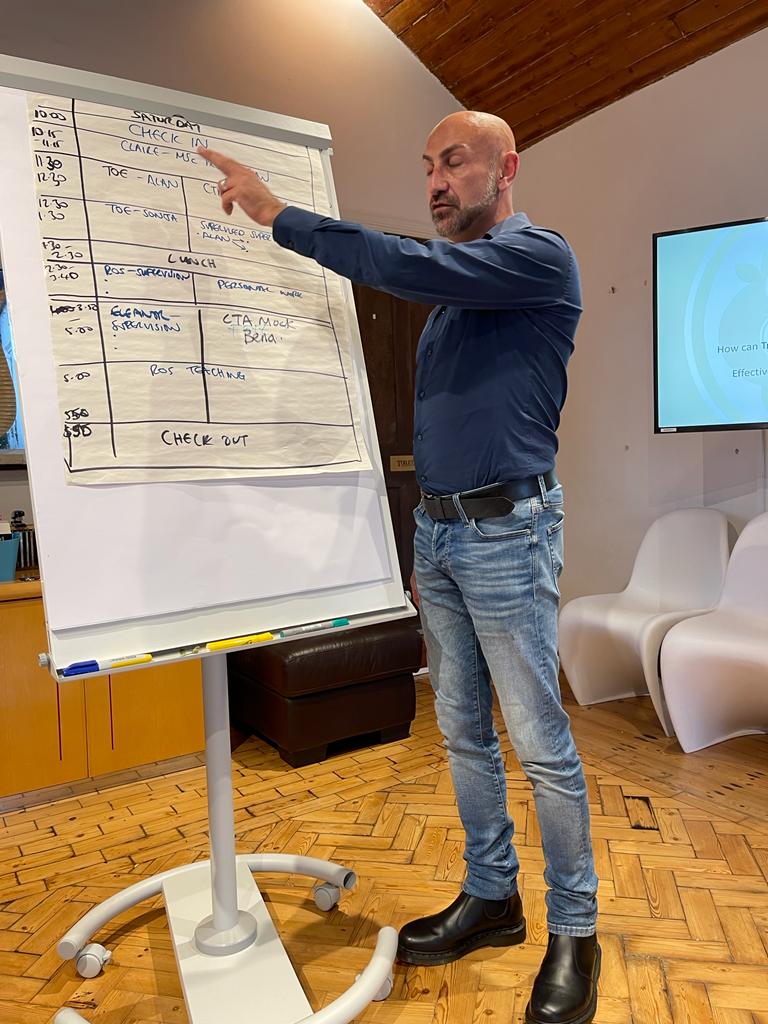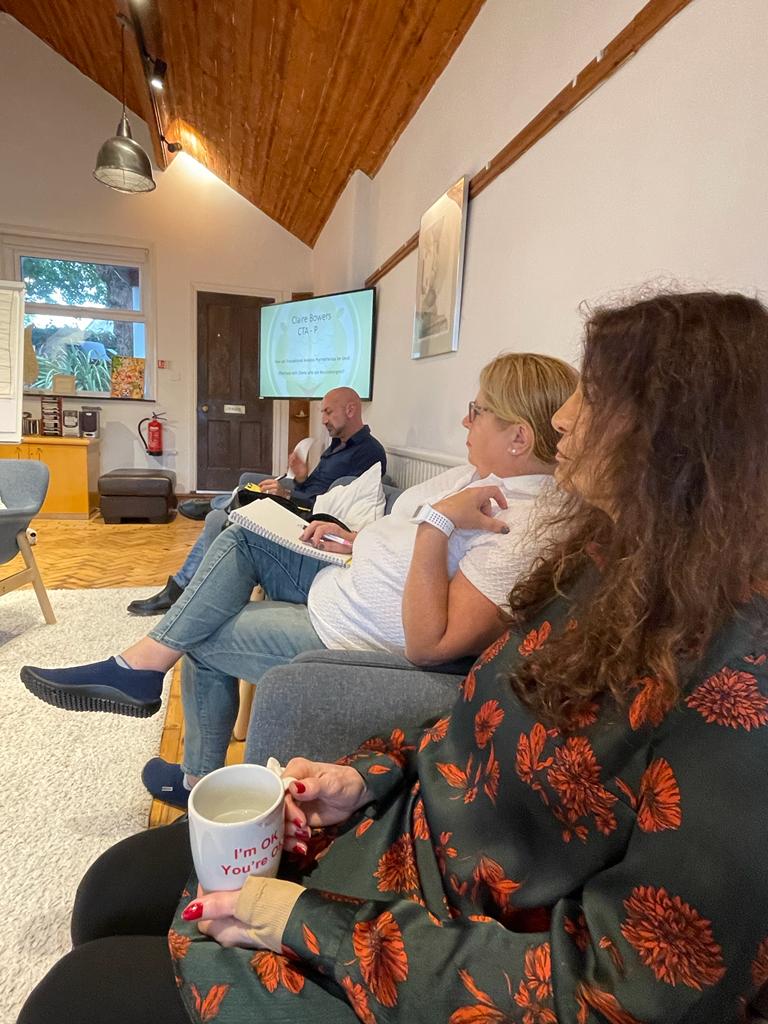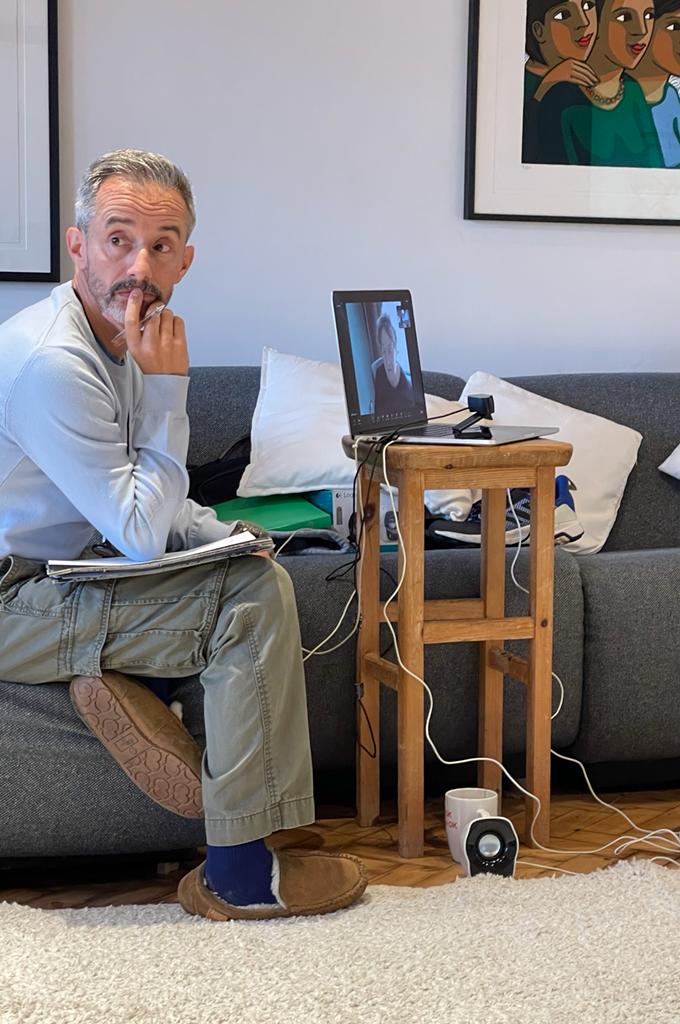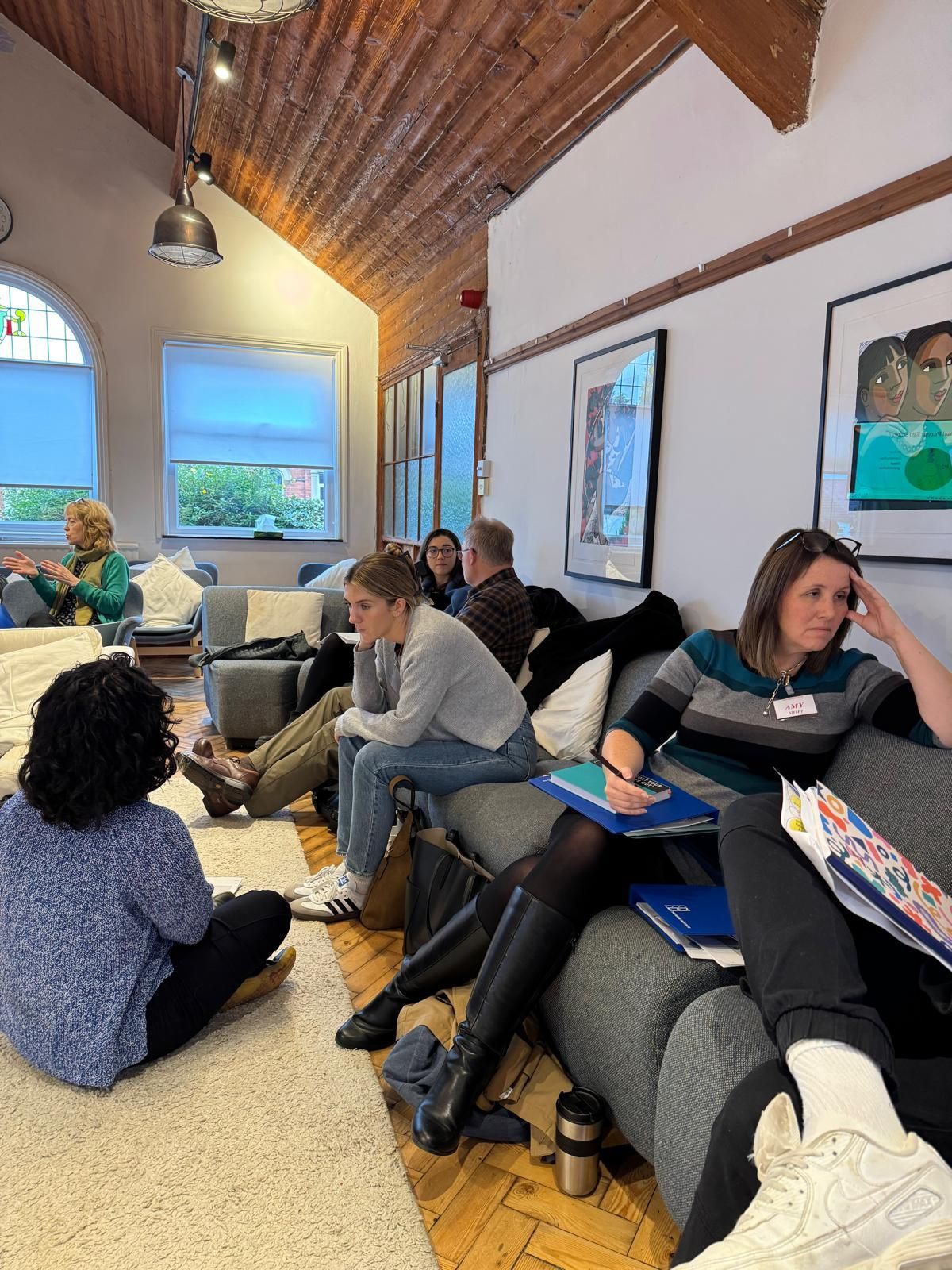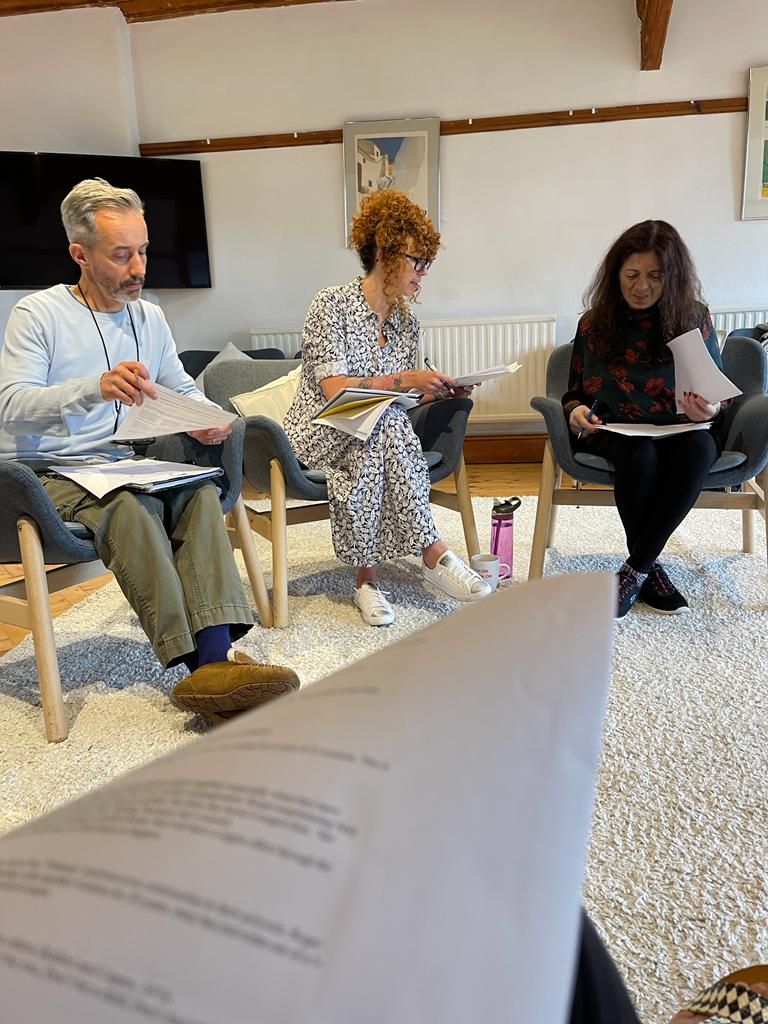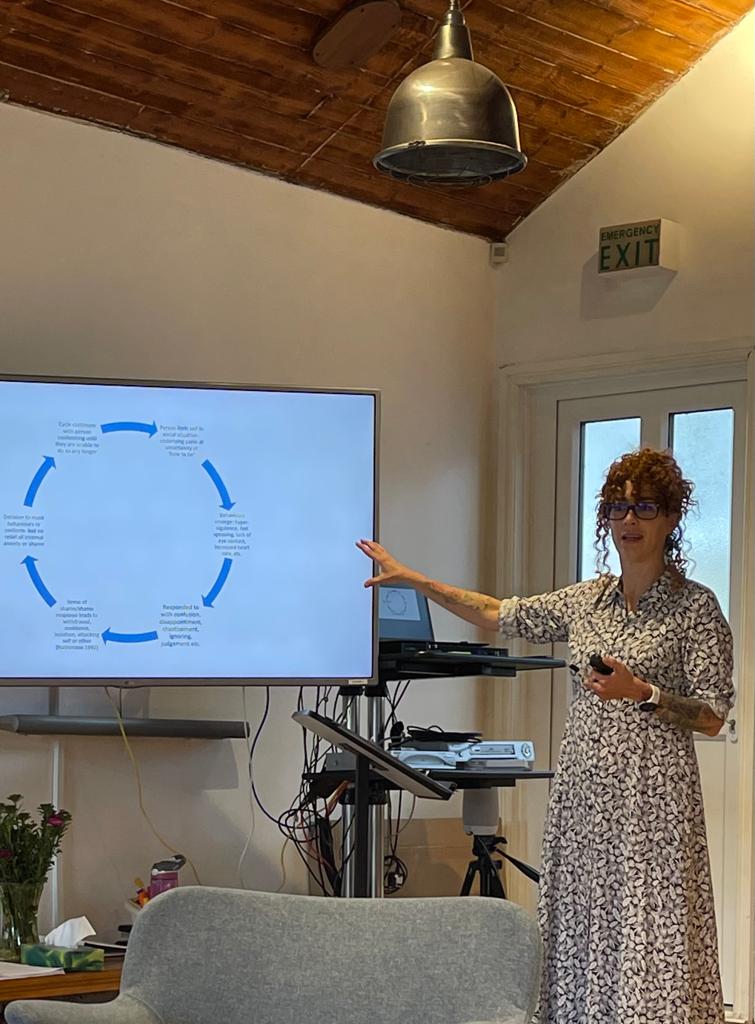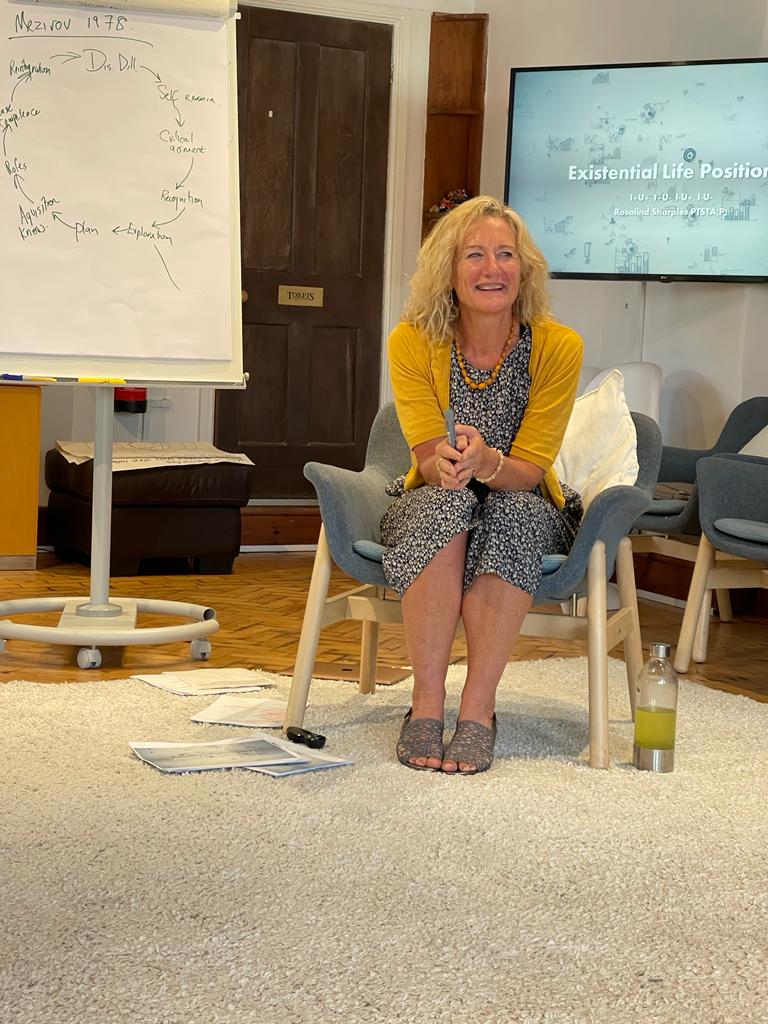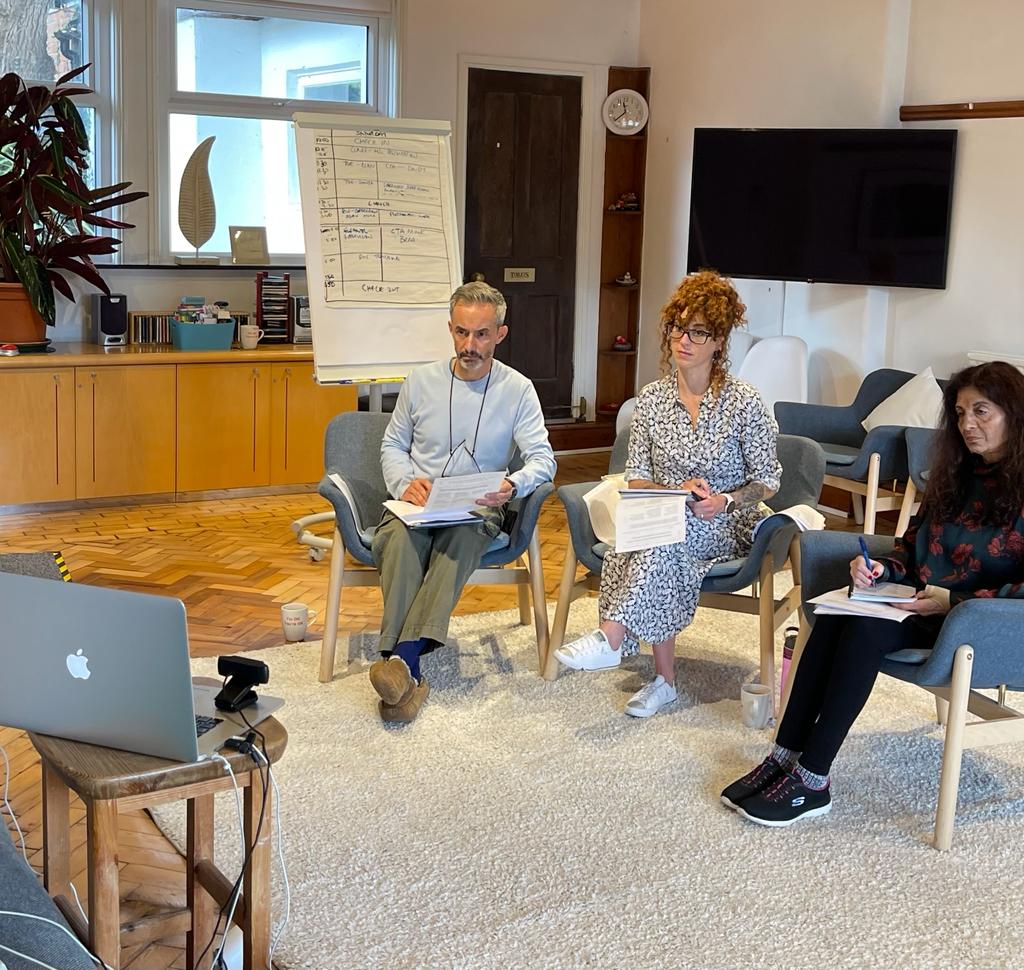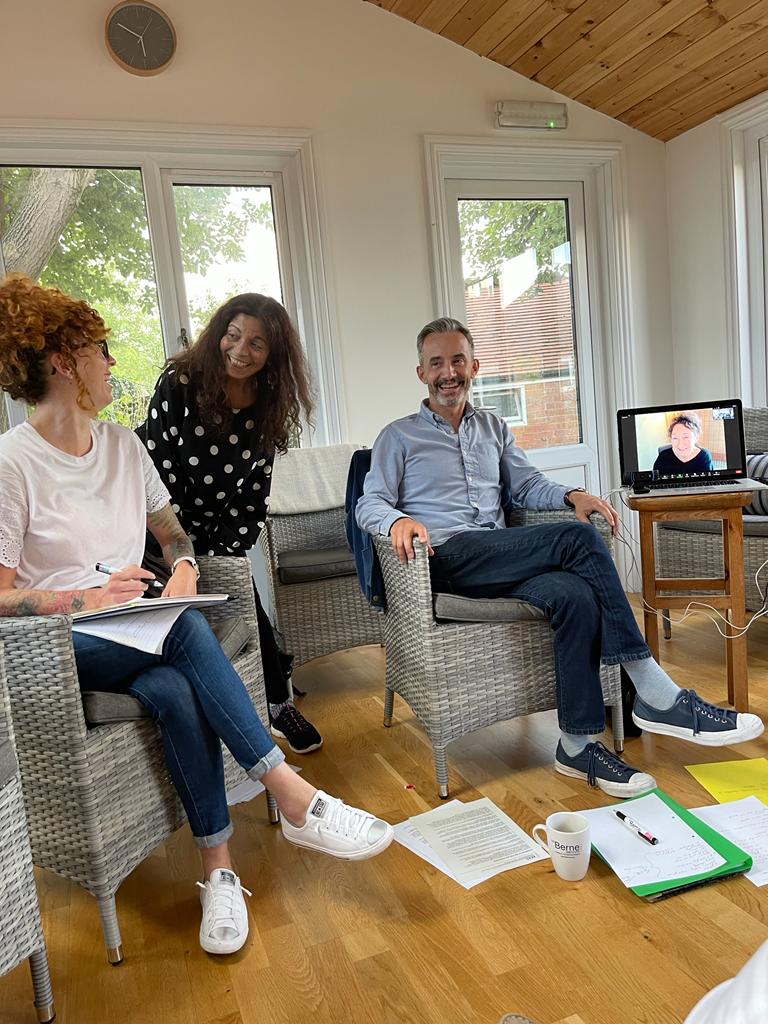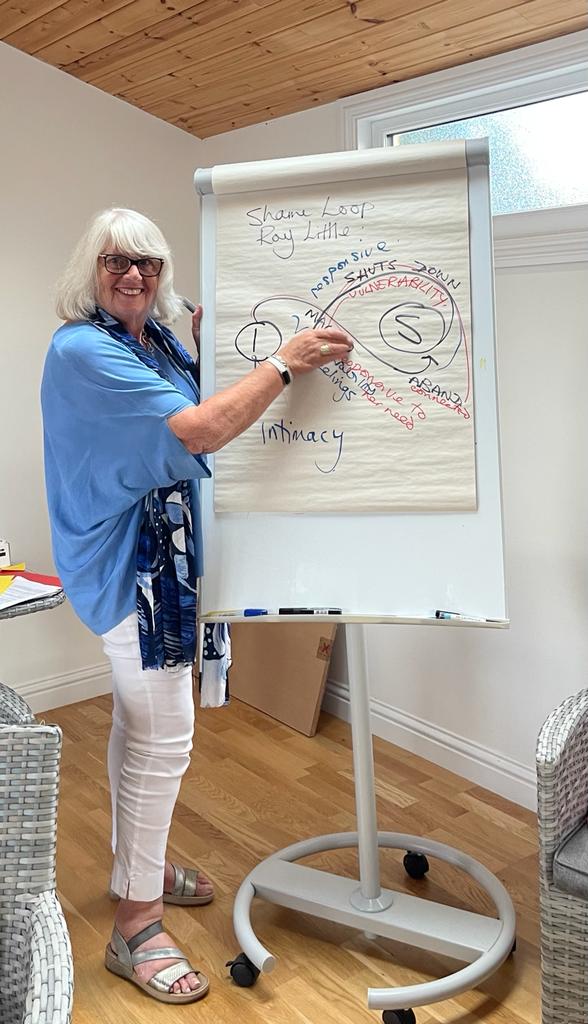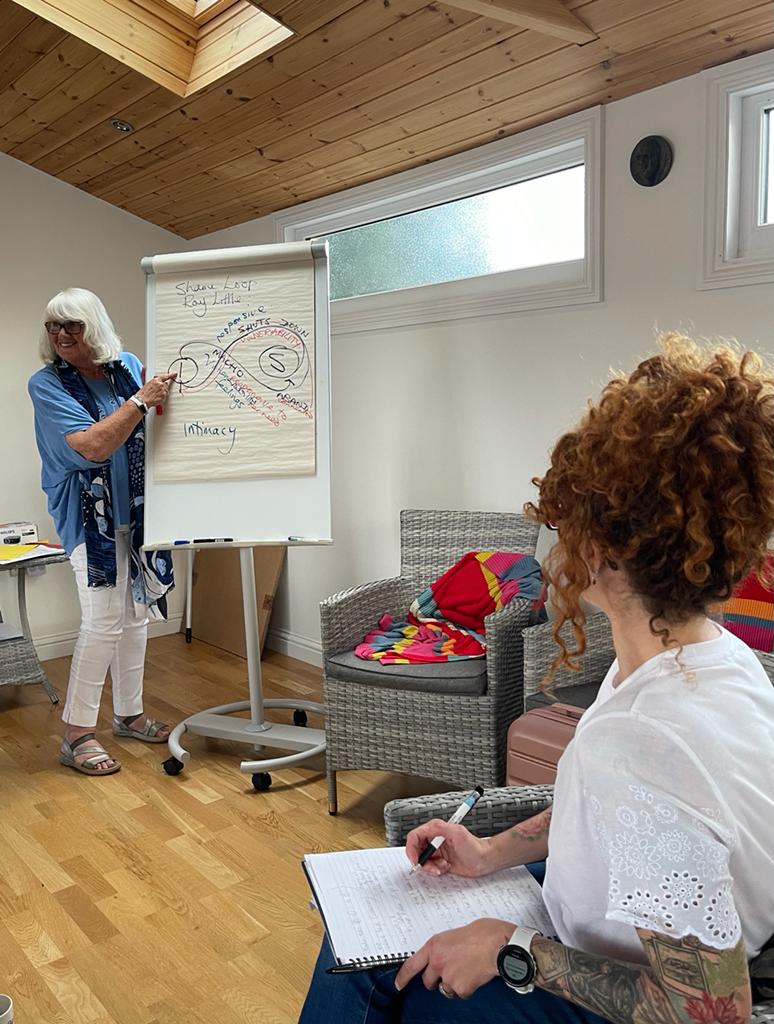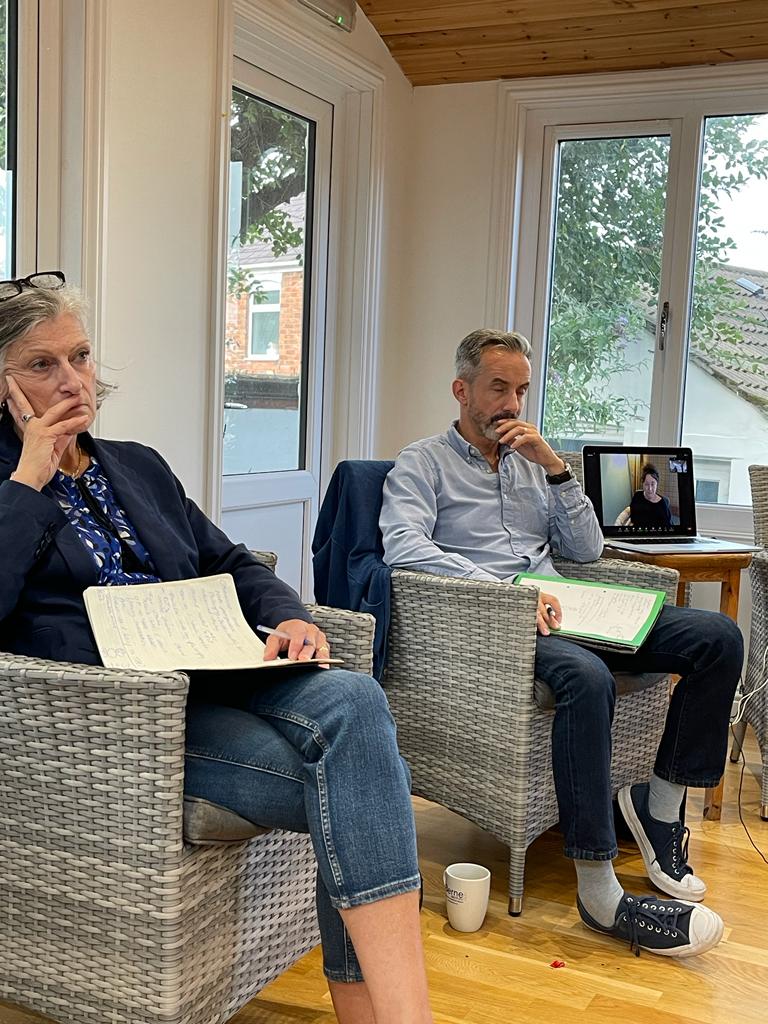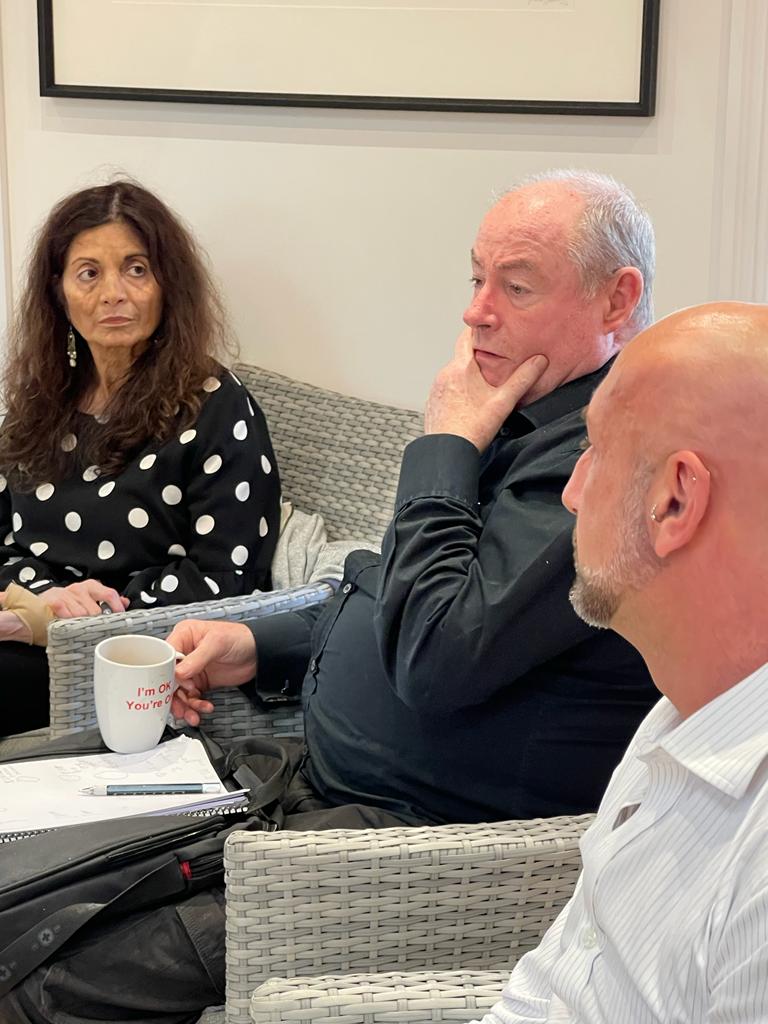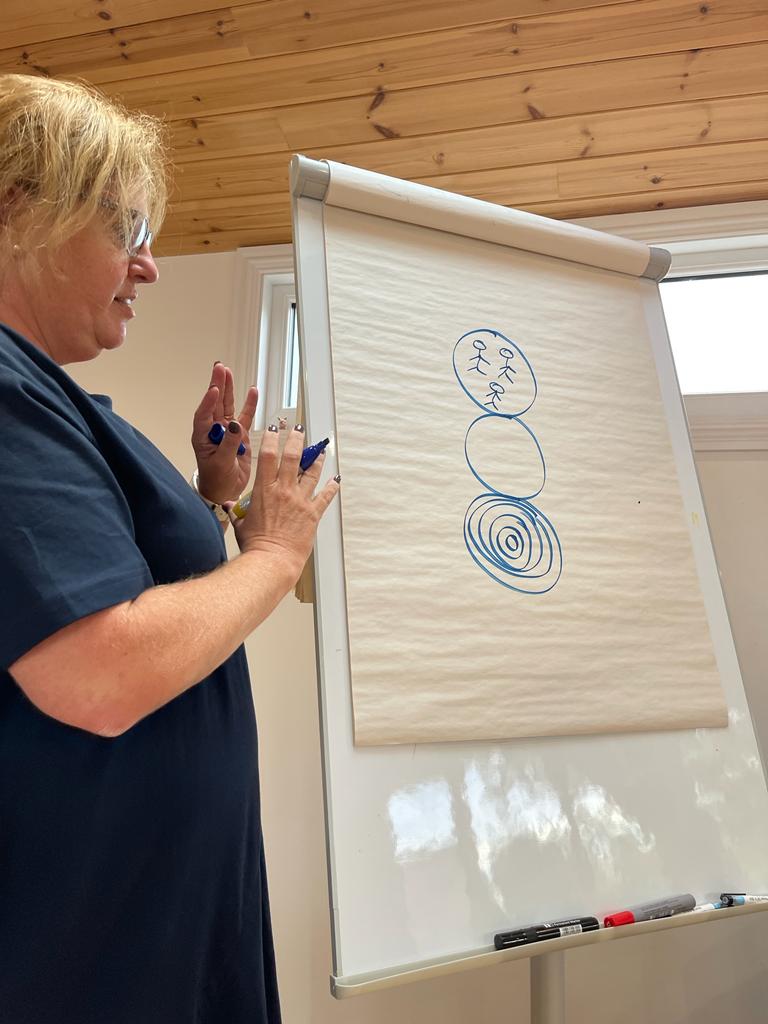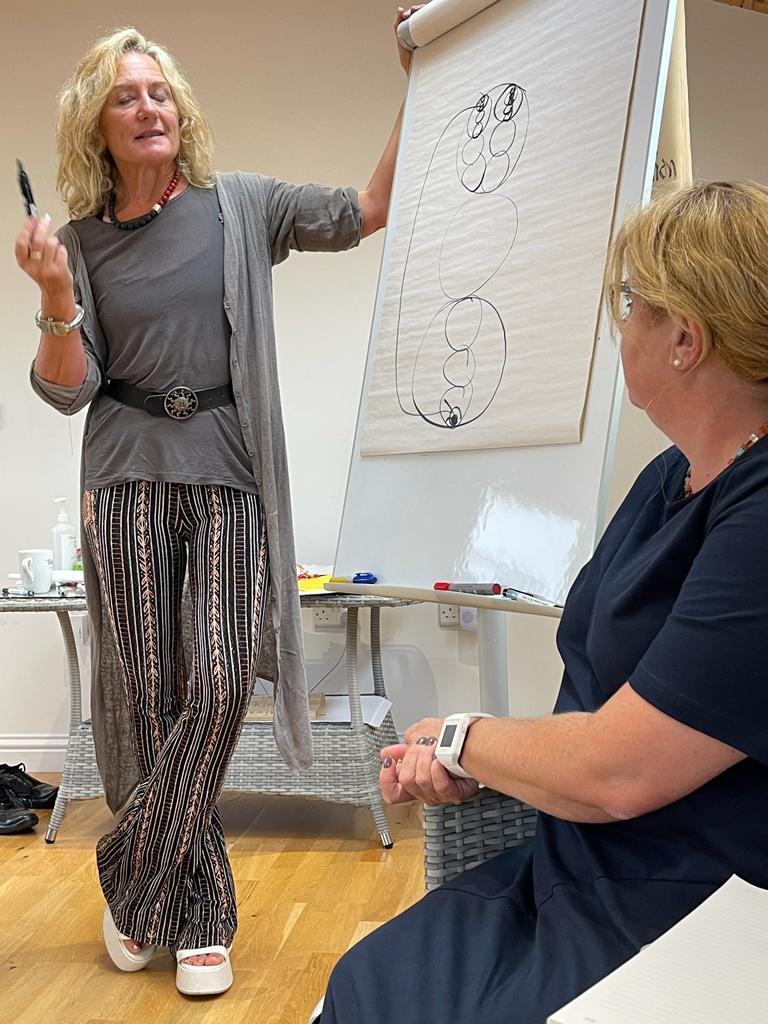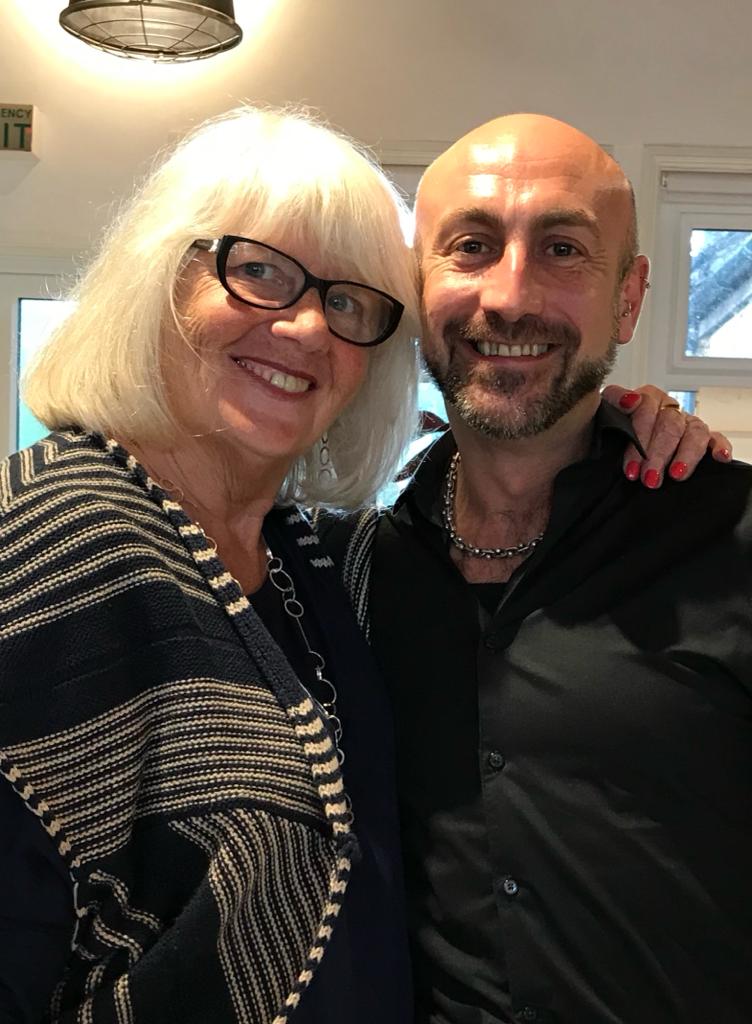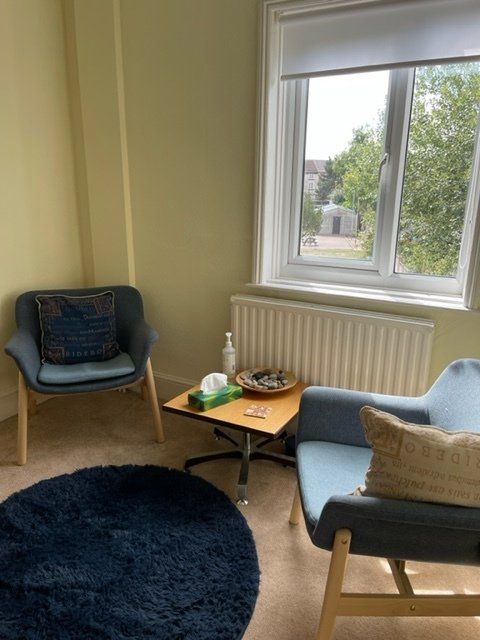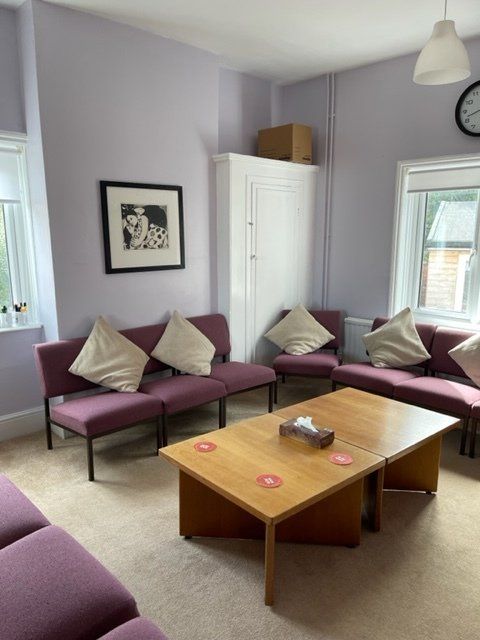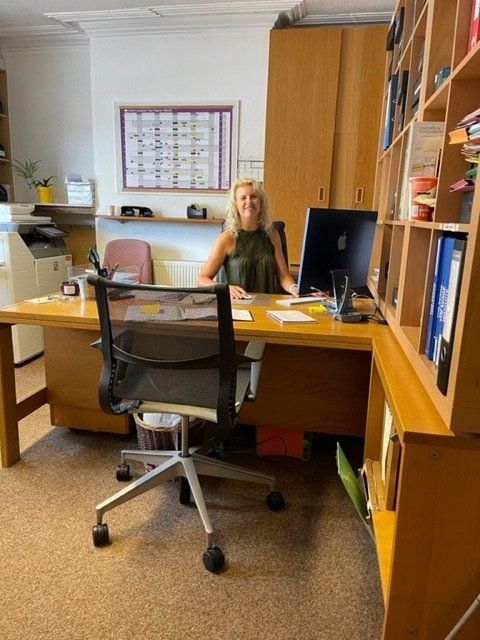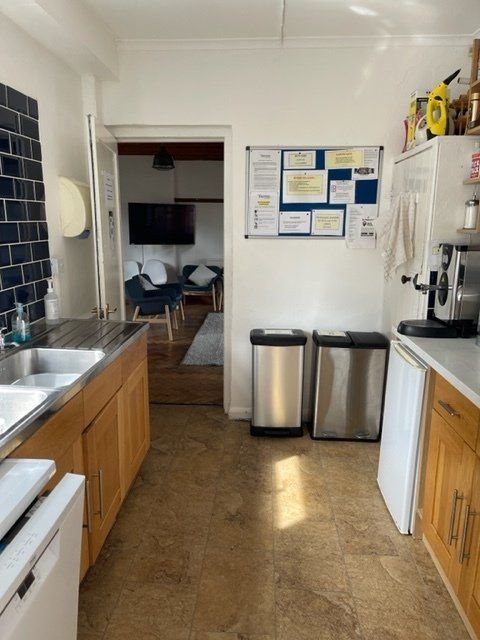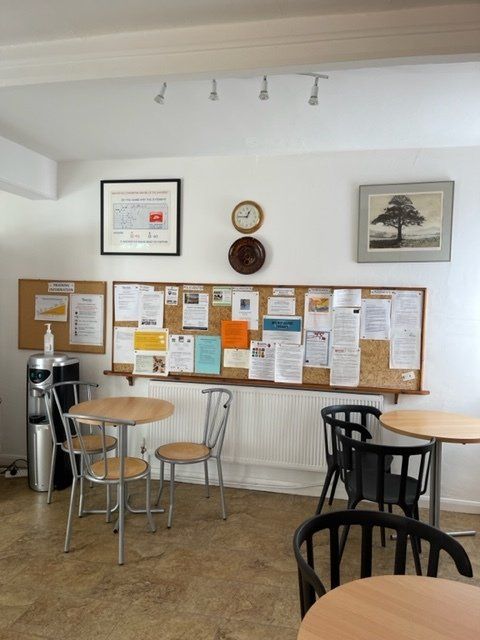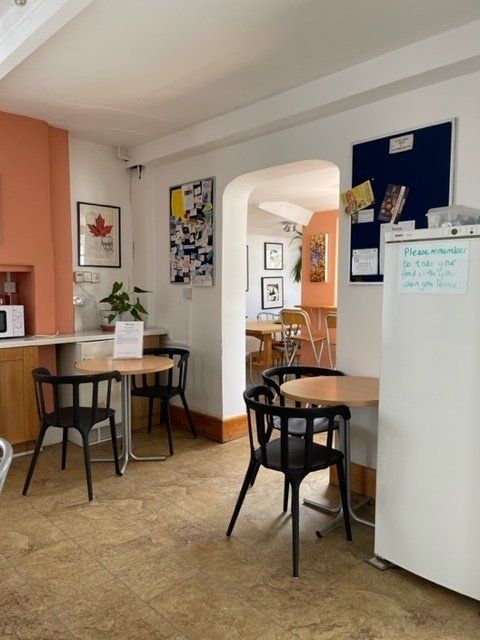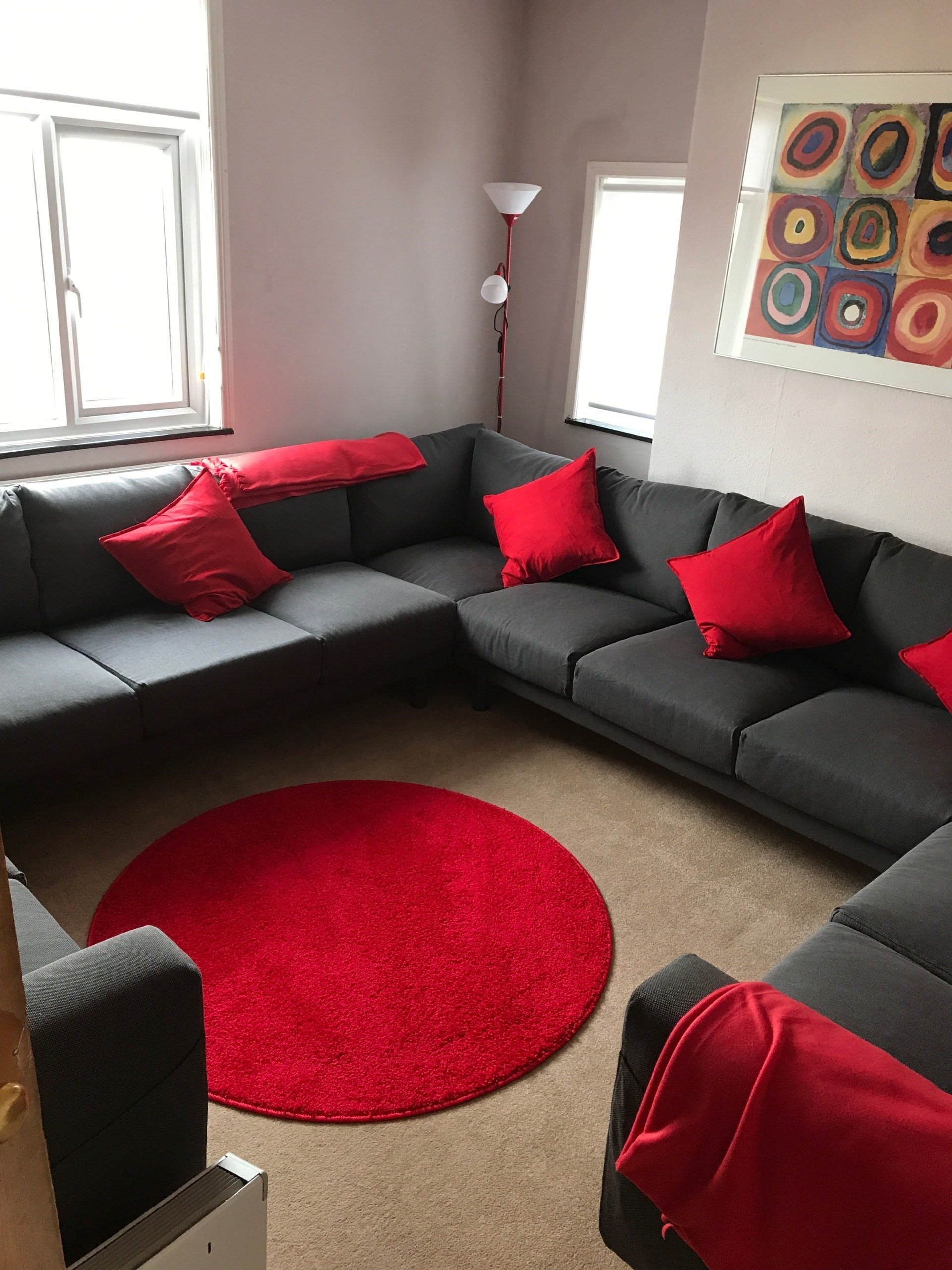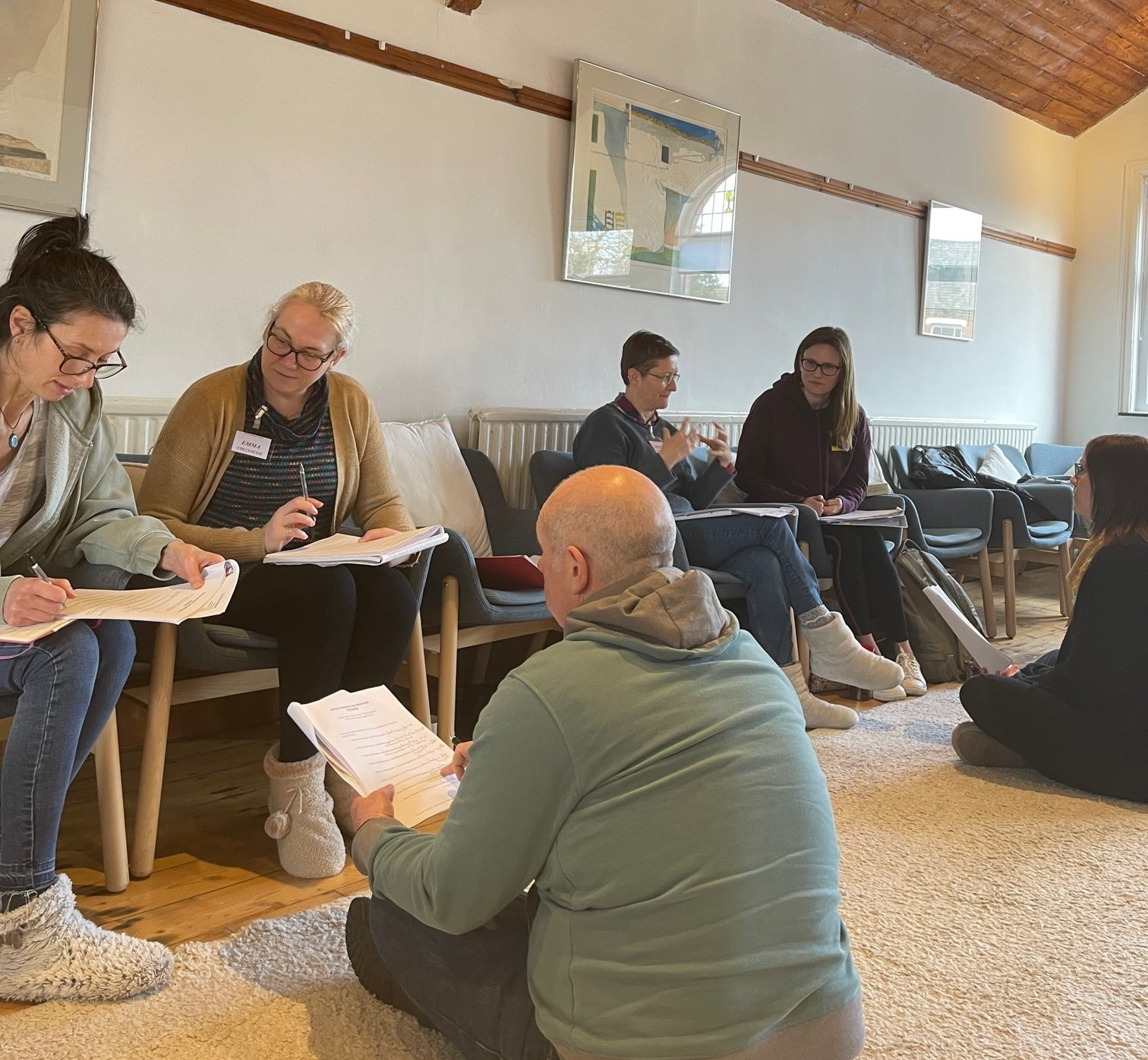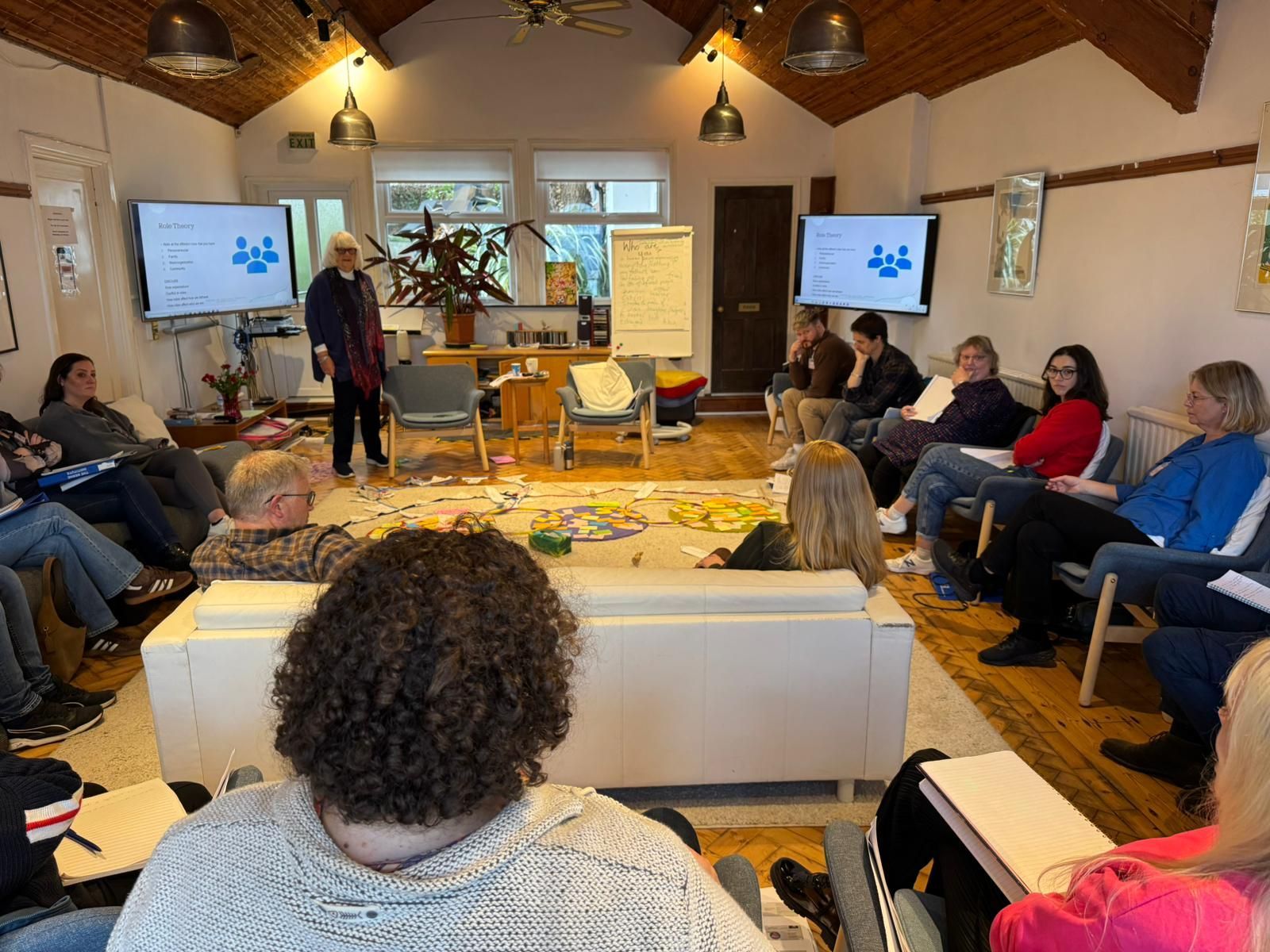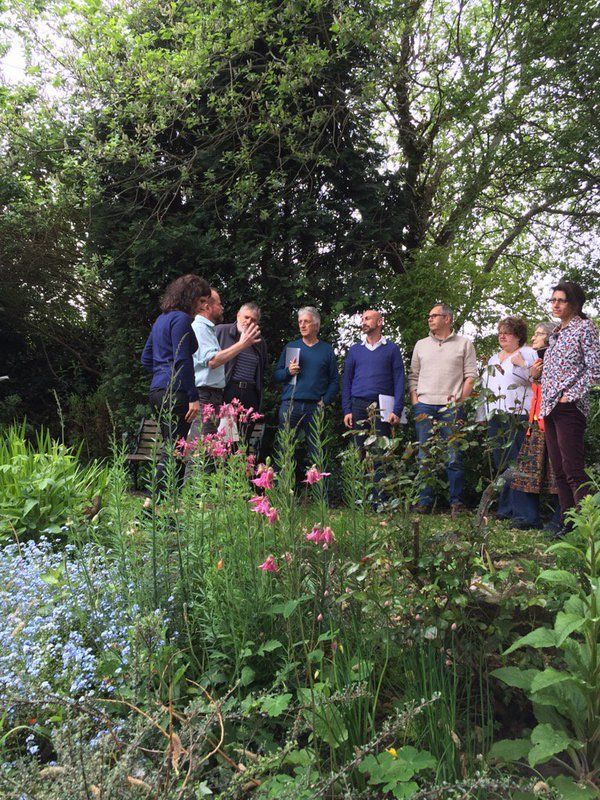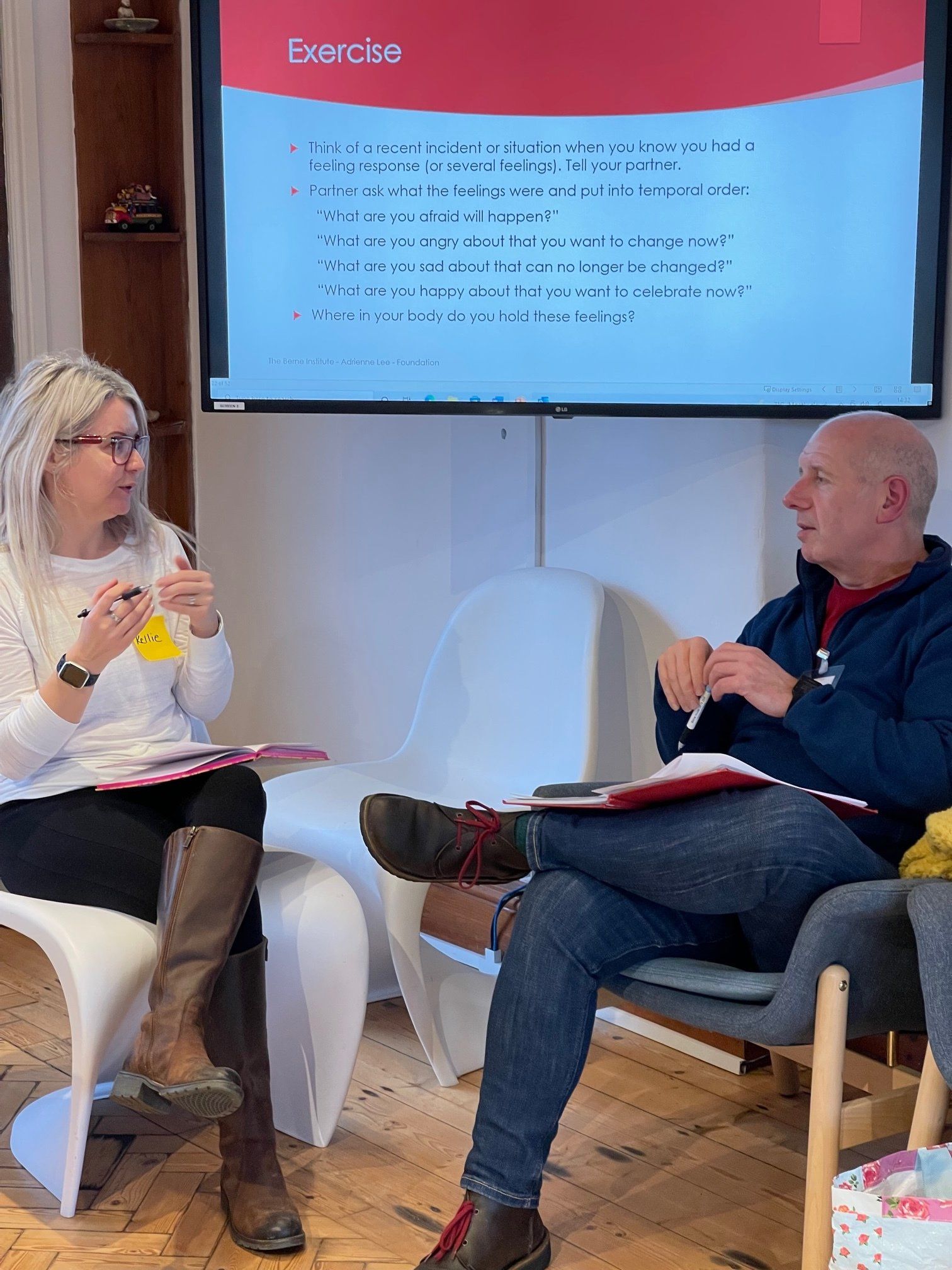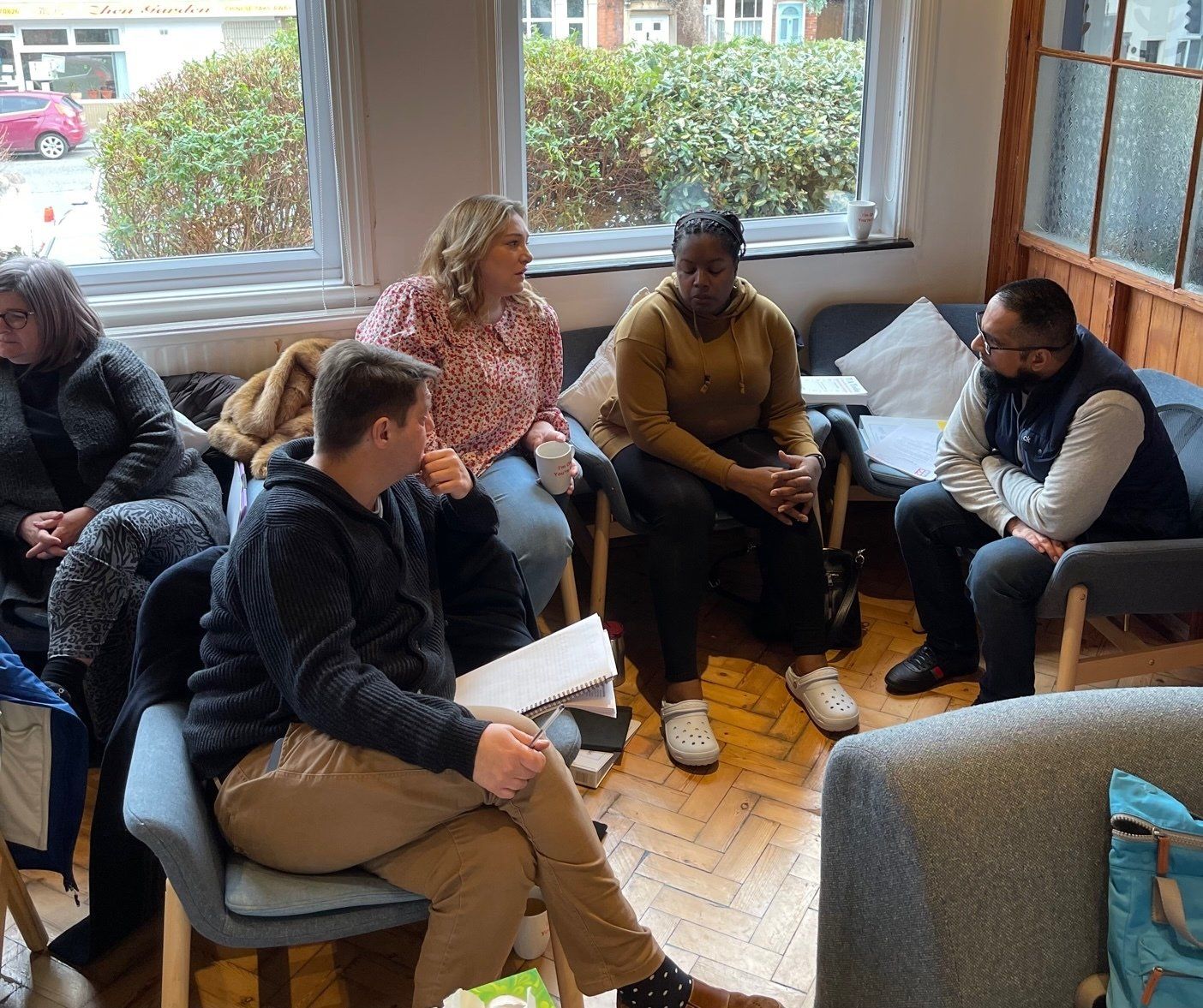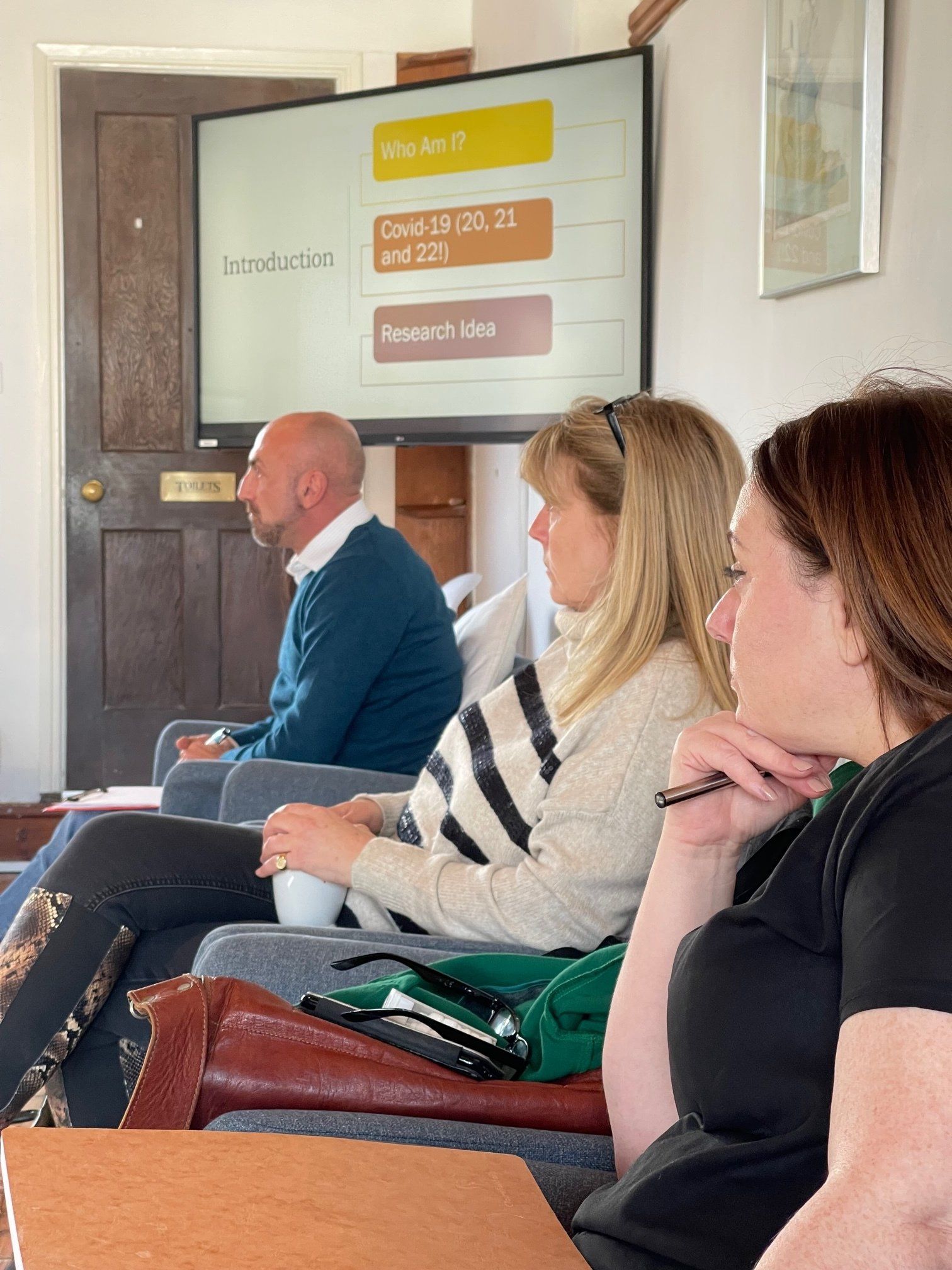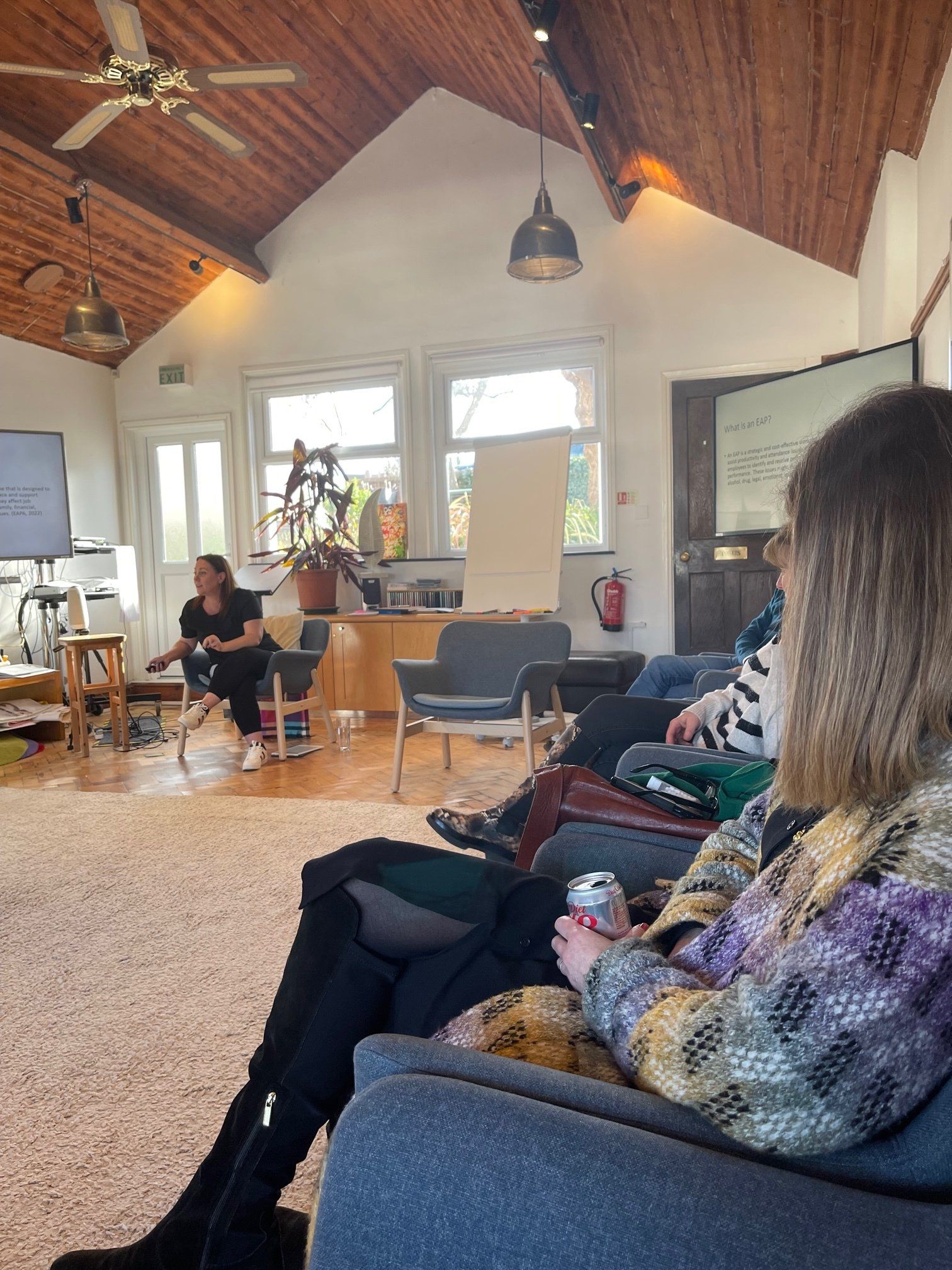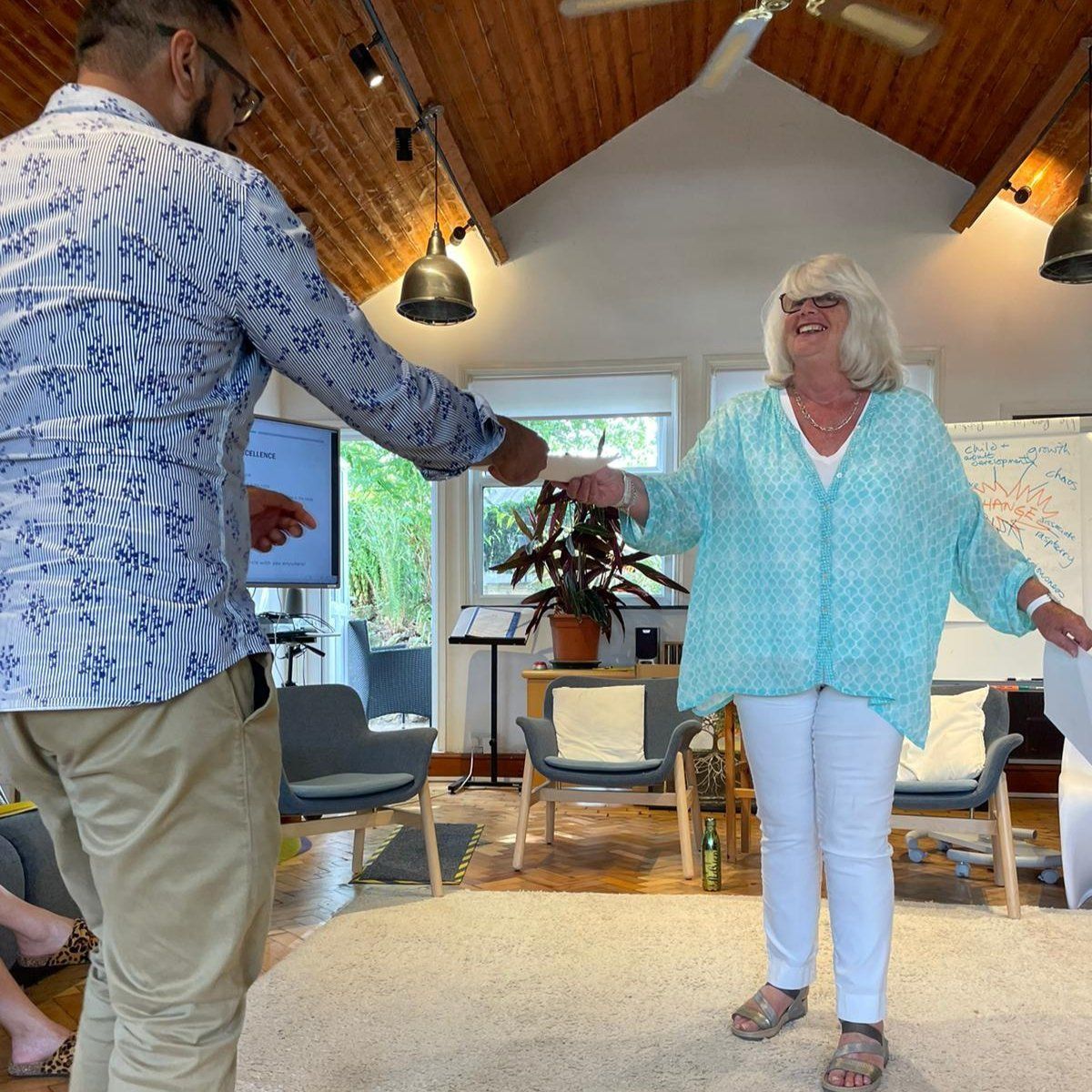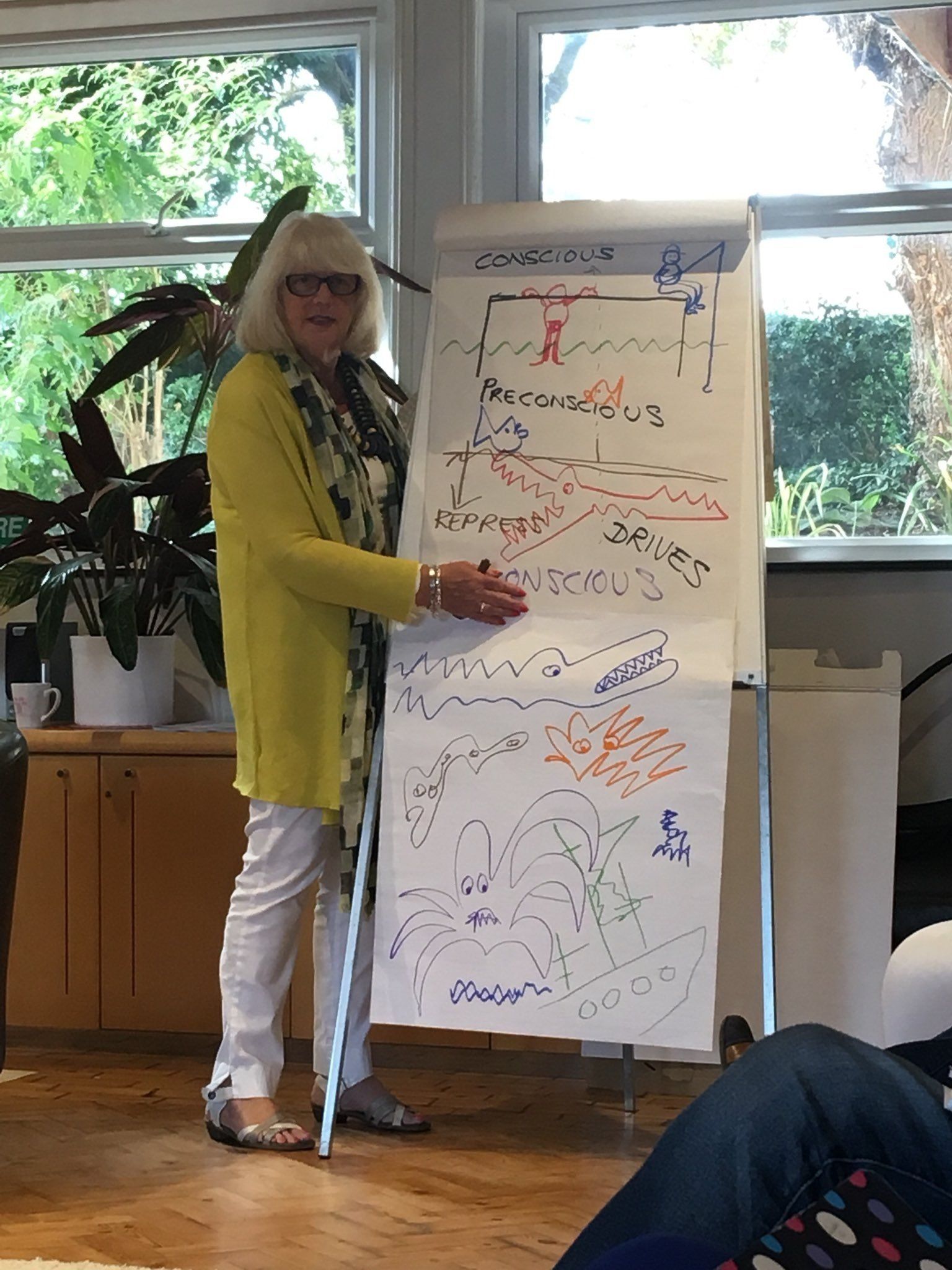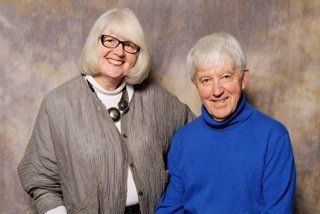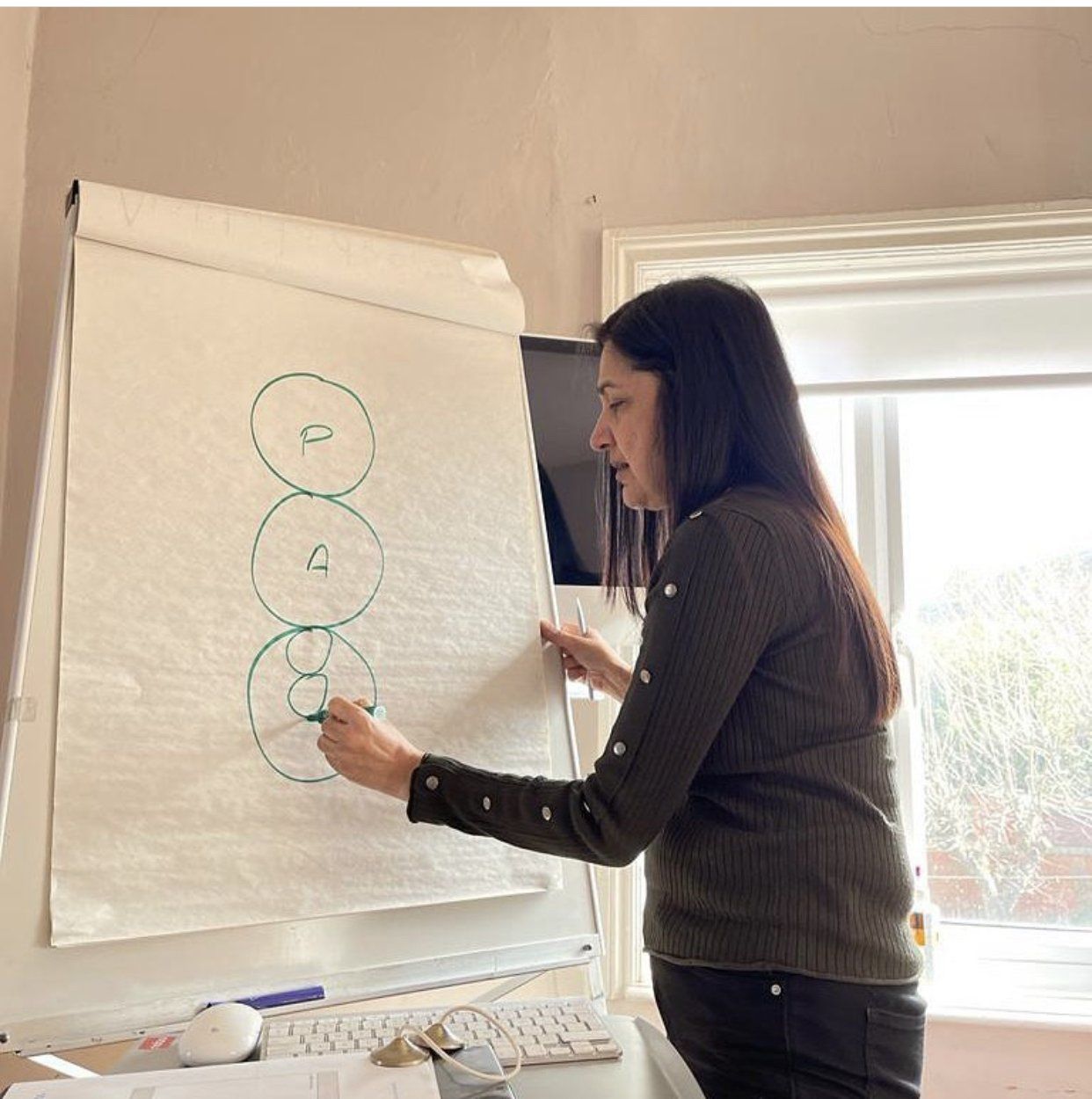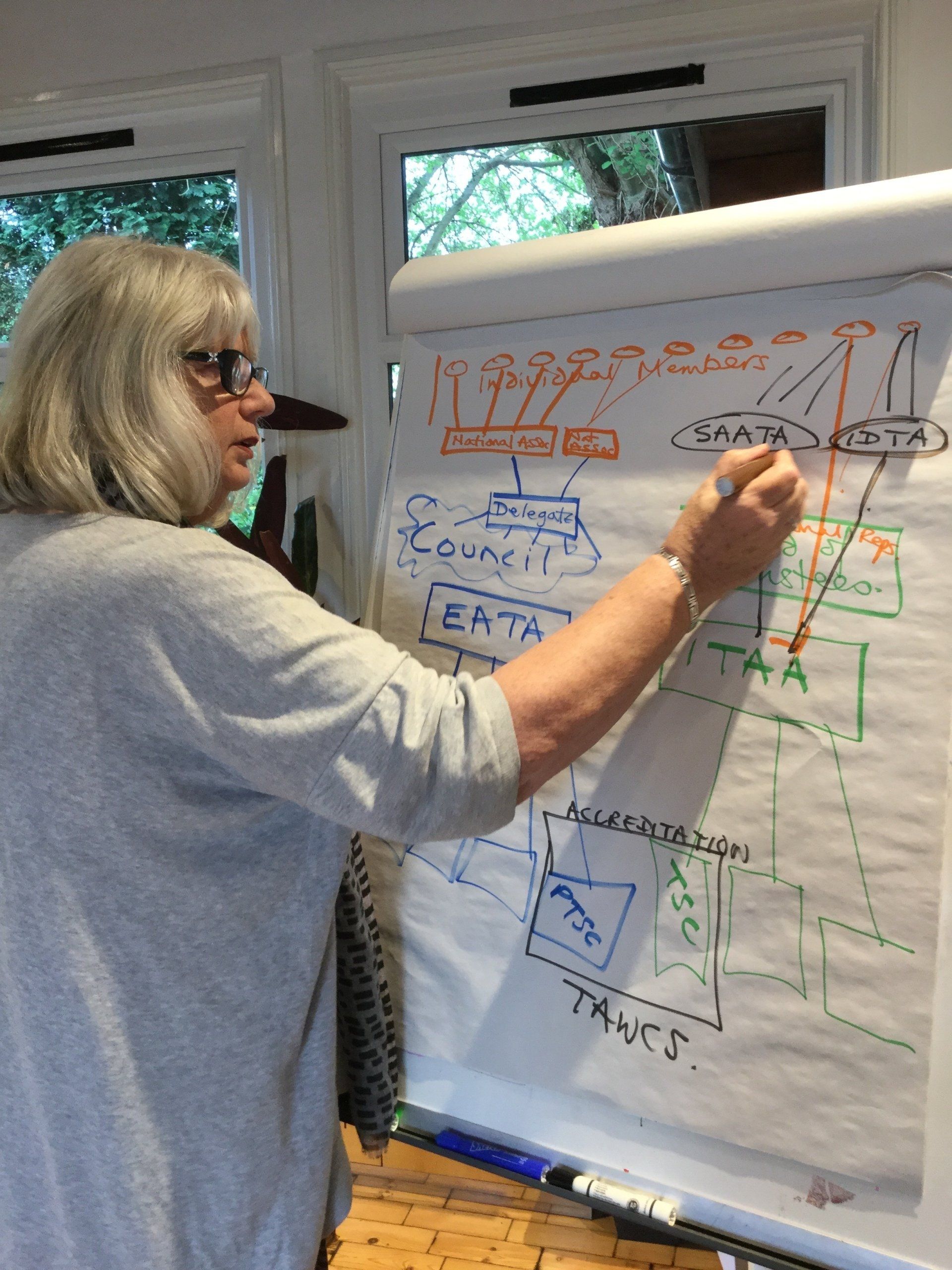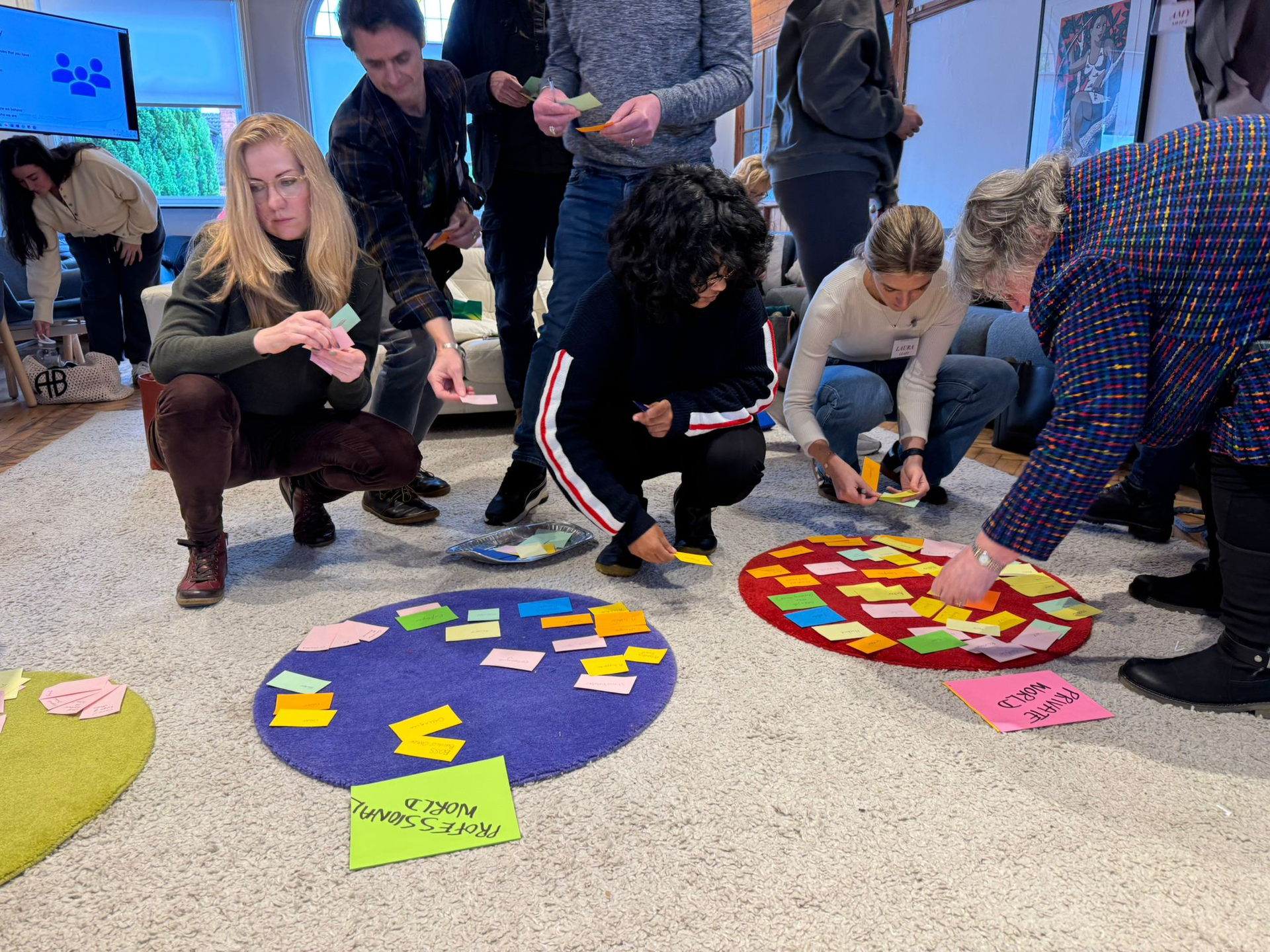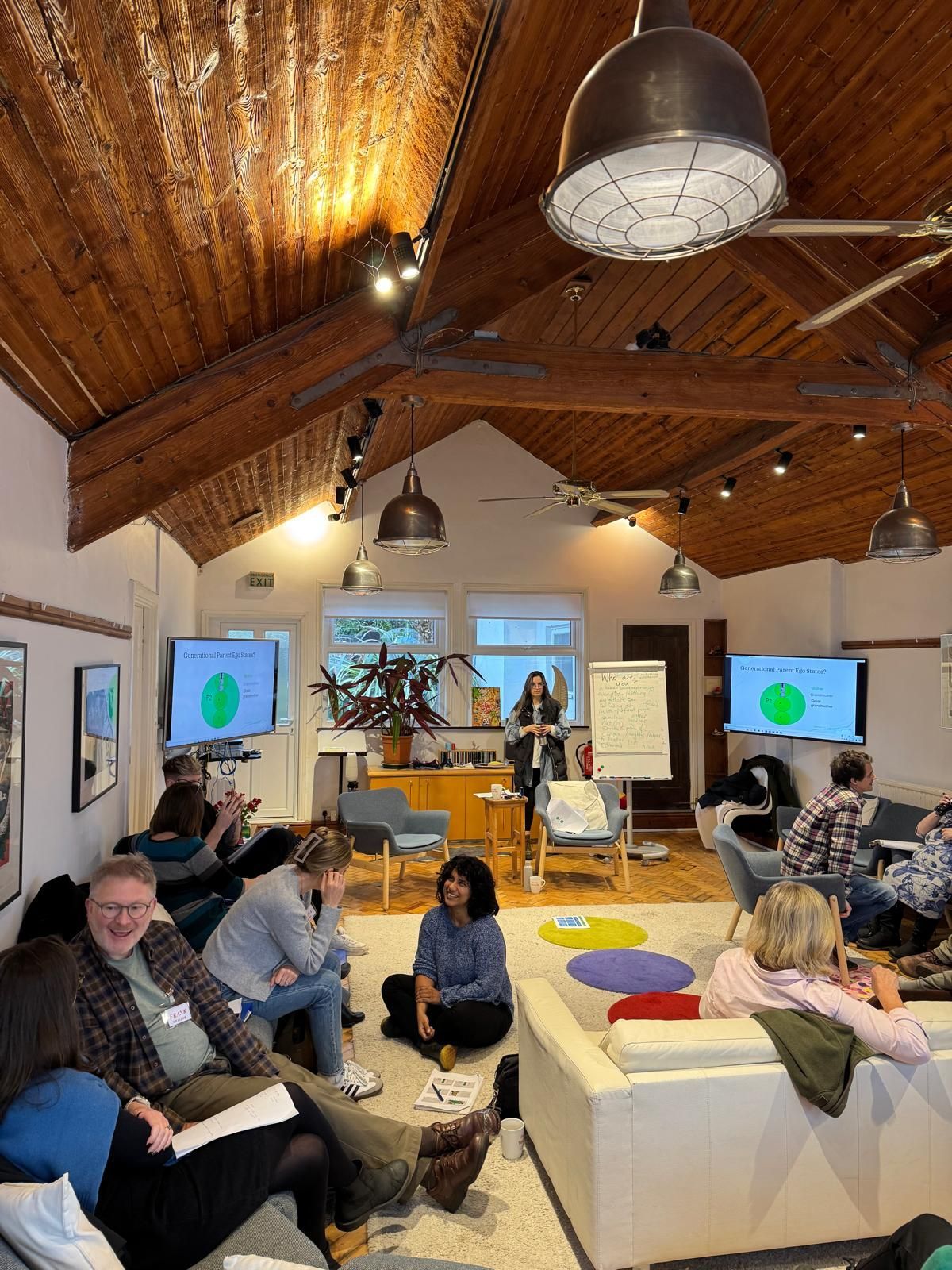MSc and CTA in
Organisational TA
About the Course
The Berne Organisational TA programme is an exciting course for professionals who work as consultants, managers, trainers and coaches in organisations. It focuses on the application of TA in organisations to increase your understanding of organisational dynamics, enhance your professional effectiveness and develop your identity as a TA practitioner.
Our learning is achieved Co-creatively with the group using: we-ness, shared responsibility, present centredness and mutual positive regard.
Click here for the Academic Regulations.
Summary
Course Cost
Fees 2025/26
£2950
We provide monthly payment options on our advanced training course fees
Course Dates
Dates 2025/26
All online except 26. 27, 28 January 2026
21 - 22 October 2025
18 - 19 November
16 - 17 December
26, 27, 28 January 2026
3 days in-person at Berne House
24 - 25 February
17 - 18 March
21 - 22 April
19 - 20 May
16 - 17 June
18 - 19 July
Tutors
Debbie Robinson
Paul Robinson
Traian Bossenmayer
Nims Dhawan
Our Core Philosophy
At The Berne Institute we recognise that people come into TA training with widely differing experiences of clinical practice, theoretical knowledge and formal academic learning, and that they differ widely also in their current personal resources and skills. Our courses therefore honour the uniqueness of each individual’s learning and experience and their different learning styles, pace and areas of competence.
The philosophy and practice of Homonomy that respects our mutuality and interconnectedness has been recently integrated into the Berne Institute philosophy. The aim is to expand the focus in our theory and practice from individual change to include a focus on the wider implications of our work on the whole community and our planet.

